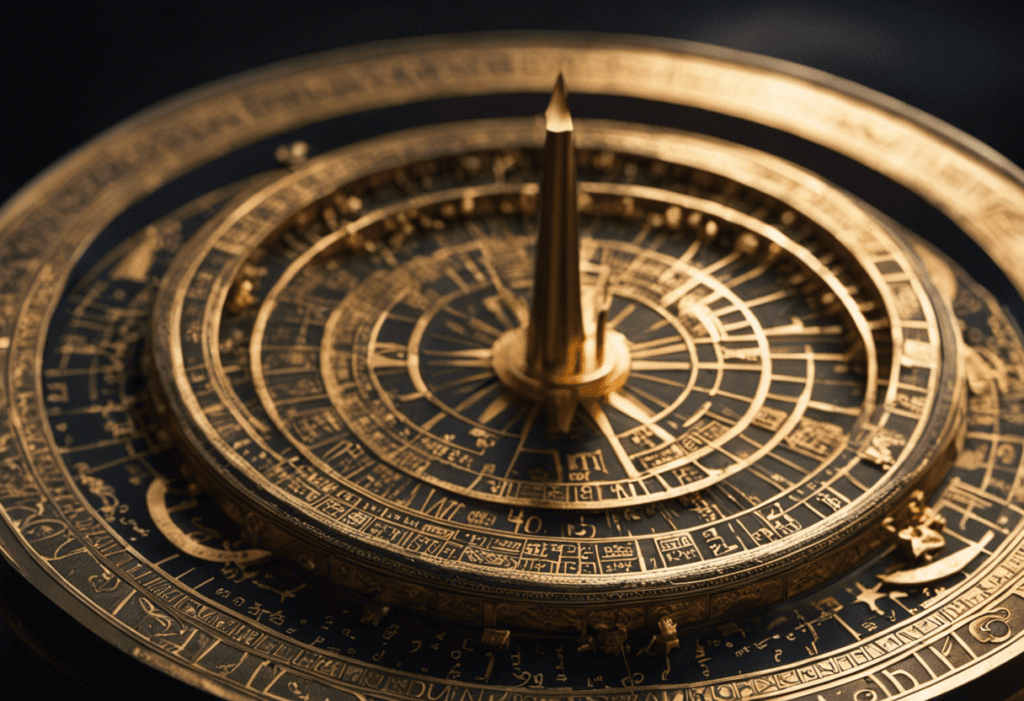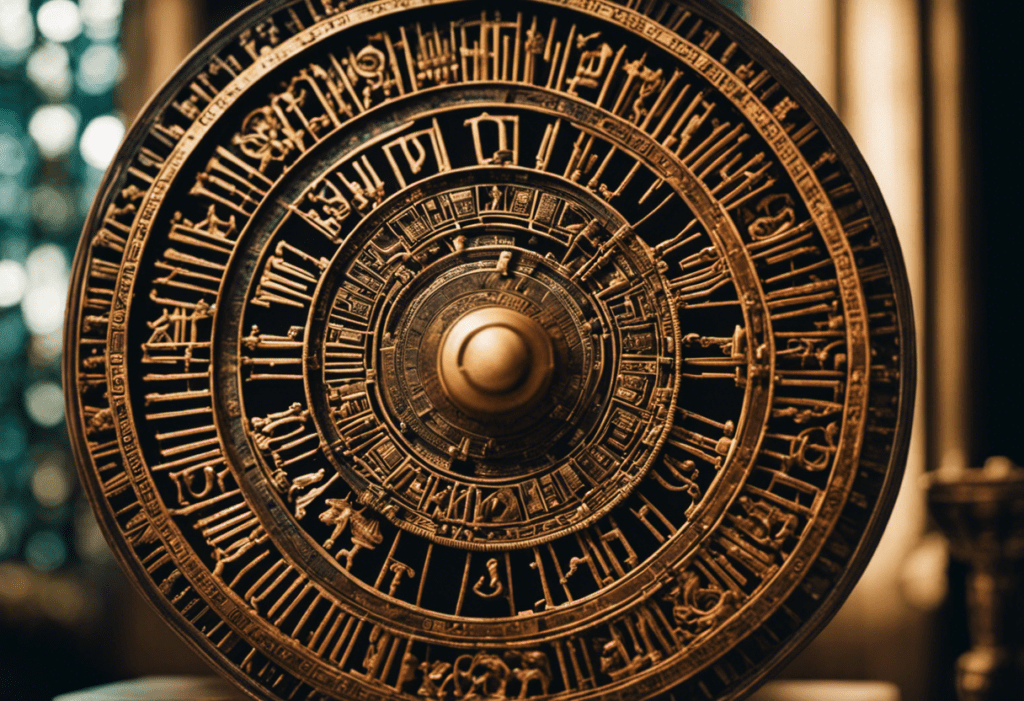The Babylonian calendar, rooted in lunar cycles, played a crucial role in ancient timekeeping. By accurately tracking the moon’s movements, the Babylonians were able to calculate the length of a year and mark the changing of seasons.
This calendar system heavily relied on astrology, which further deepened its significance.
Today, we continue to be influenced by the Babylonian calendar in modern timekeeping practices.
In this article, we will explore the intricate workings and enduring impact of this ancient calendar.
Key Takeaways
- The Babylonian calendar was based on lunar cycles and observed the moon’s phases to determine the length of a month.
- Lunar eclipses were significant events in Babylonian culture and were used to make predictions and as omens.
- The Babylonians were able to calculate the length of a year with impressive accuracy, considering their limited tools and technology.
- The Babylonian calendar did not directly track seasons, but seasonal festivals and the interplay between lunar and solar observations were used to mark significant events and changing seasons.
The Lunar Basis of the Babylonian Calendar
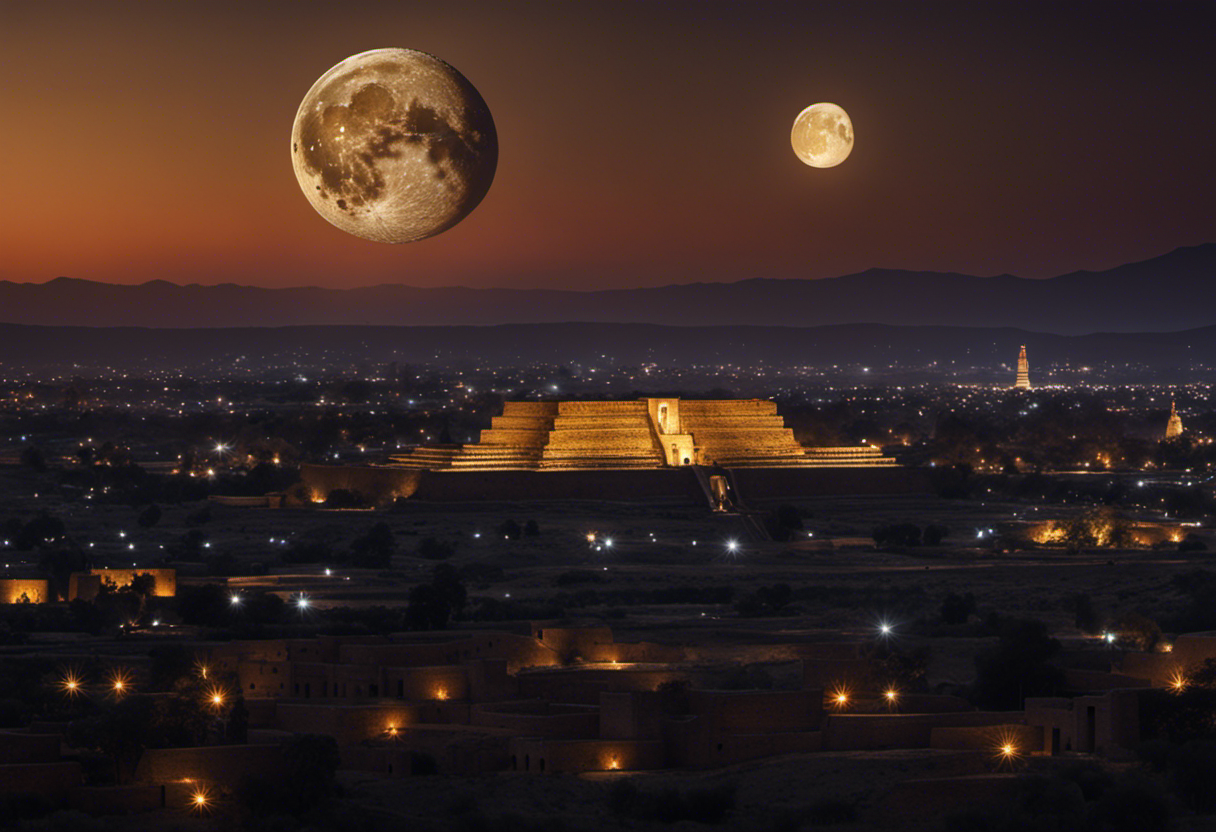

During the time of the Babylonian civilization, the lunar cycles played a crucial role in the development and implementation of their calendar system. The Babylonians were keen observers of celestial phenomena and recognized the importance of the moon in tracking time. They noticed that the moon went through a series of phases over a period of approximately 29.5 days, which eventually led them to base their calendar on the lunar cycle.
By closely monitoring the moon’s movements, the Babylonians were able to establish a system that divided the lunar month into smaller units. They divided the month into three parts: the waxing phase, the full moon, and the waning phase. This division allowed them to track the moon’s progression through its cycle and accurately predict future phases.
The Babylonians also incorporated celestial observations into their calendar system. They observed the positions of stars and constellations in the night sky, which helped them determine important events such as solstices, equinoxes, and eclipses. They recognized the cyclical nature of these celestial events and incorporated them into their calendar system to mark specific dates and events.
The Role of the Moon in Babylonian Timekeeping
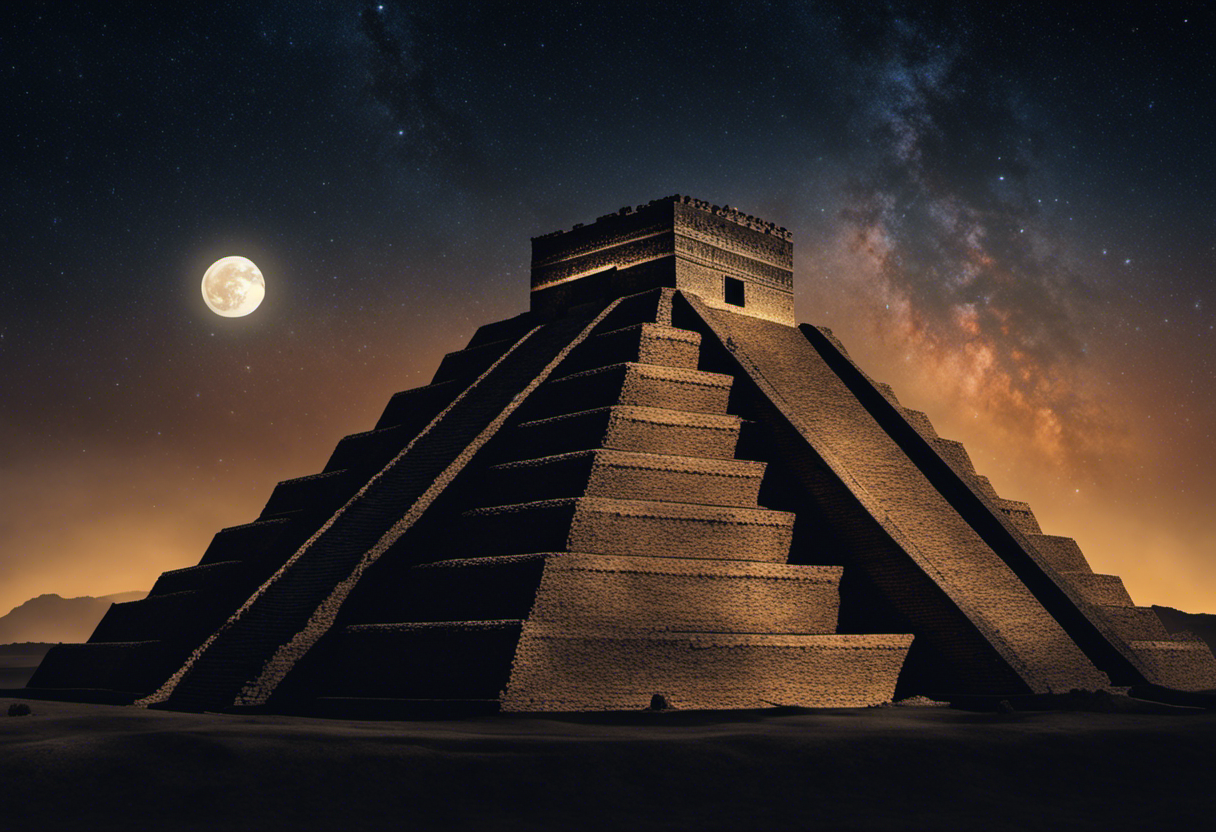

The moon played a crucial role in Babylonian timekeeping. The Babylonians observed the lunar phases to determine the length of their months, which were typically 29 or 30 days long.
Additionally, lunar eclipses held significant astronomical and religious importance in their calendar system.
Lunar Phases and Months
Babylonian astronomers meticulously observed and recorded the ever-changing lunar phases, which served as the foundation for their accurate measurement of months. The lunar phases played a crucial role in the Babylonian calendar system, especially in relation to agriculture. By closely monitoring the lunar phases, Babylonian farmers were able to determine the optimal times for planting and harvesting crops.
The lunar calendar, based on the cycles of the moon, was more closely aligned with the agricultural needs of the Babylonians compared to the solar calendar. The lunar calendar consisted of 12 months, each corresponding to a complete lunar cycle. While the solar calendar was used for certain administrative purposes, the lunar calendar remained the primary tool for agricultural planning and timekeeping in Babylonian society.
The careful observation and recording of lunar phases allowed the Babylonians to develop a calendar system that was well-suited to their agricultural practices.
Lunar Eclipse Significance
By understanding the moon’s role in Babylonian timekeeping, scholars can appreciate the significance of lunar eclipses in predicting celestial events.
The Babylonians were among the first civilizations to develop a calendar based on lunar cycles. Their calendar consisted of twelve lunar months, with each month beginning on the first sighting of the new moon.
Lunar eclipses played a crucial role in their timekeeping system. Babylonian astronomers observed and recorded lunar eclipses, which helped them predict future celestial events. These predictions were not only important for astrological interpretations, but also for cultural celebrations.
Lunar eclipses were seen as omens and were often associated with significant events or changes in the world. Understanding the Babylonian calendar and the significance of lunar eclipses provides valuable insights into ancient timekeeping practices and cultural beliefs.
Calculating the Length of a Babylonian Year
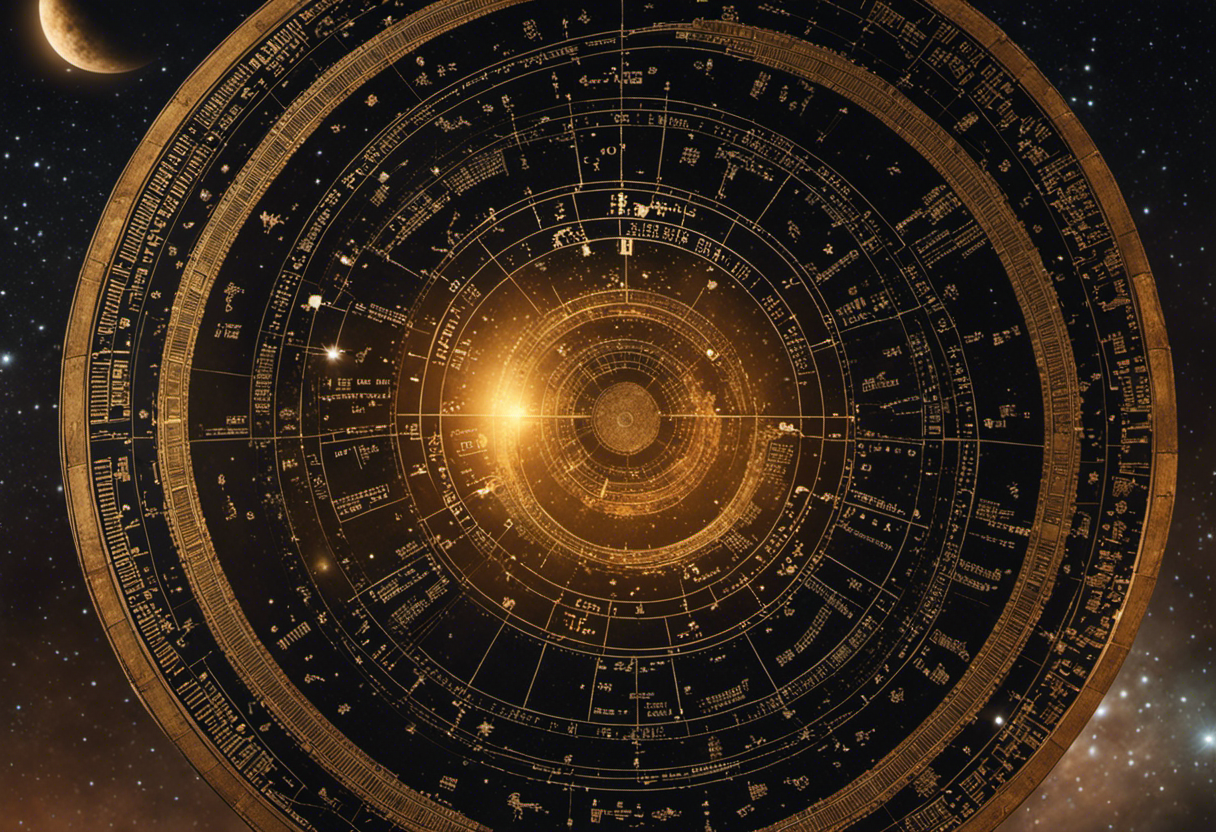

A key element in determining the length of a Babylonian year is the meticulous study of ancient astronomical records. The Babylonians were renowned for their advanced knowledge of astronomy and their ability to make accurate astronomical observations. These observations were crucial in calculating the length of a Babylonian year.
The Babylonians used a lunisolar calendar, which means that it was based on both the cycles of the moon and the sun. They observed the movements of celestial bodies and recorded their observations on clay tablets. These tablets contain detailed records of the positions of the sun, moon, and stars at different times of the year.
By studying these ancient astronomical records, modern scholars have been able to determine the length of a Babylonian year. They have discovered that the Babylonians were able to accurately calculate the length of a year to within a few minutes. This level of precision is remarkable considering the limited tools and technology available to them.
Tracking the Seasons in the Babylonian Calendar


The Babylonian calendar, which primarily relied on lunar cycles, did not directly track the seasons. However, the Babylonians did have seasonal festivals that were celebrated throughout the year.
These festivals likely marked the changing of seasons and were an important part of the Babylonian calendar system.
Lunar or Solar
In the study of the Babylonian calendar, the interplay between lunar and solar observations underscores the complexity of tracking seasonal changes. The Babylonians used a lunisolar calendar, which means it was based on both lunar and solar alignments.
Here are four key aspects of how the Babylonian calendar worked:
-
Lunar Alignments: The Babylonians observed the phases of the moon to determine the passage of time. They divided the lunar month into different phases, such as the waxing and waning crescent, half-moon, and full moon.
-
Solar Alignments: In addition to lunar observations, the Babylonians also paid attention to the position of the sun in the sky. They marked significant events, such as solstices and equinoxes, which helped them track the changing seasons.
-
Intercalation: To reconcile the lunar and solar cycles, the Babylonians added extra months periodically. This practice, known as intercalation, ensured that their calendar remained in sync with the natural rhythms of the Earth and the heavens.
-
Astrology and Divination: The Babylonians believed that celestial events had a direct impact on human affairs. They used their knowledge of lunar and solar alignments for astrological and divinatory purposes, seeking guidance and predicting future events.
Seasonal Festivals Celebrated?
Seasonal festivals were an integral part of Babylonian culture, reflecting their deep connection to the changing seasons as tracked by their sophisticated calendar system. The Babylonian calendar was a lunisolar calendar, meaning it was based on both the cycles of the moon and the solar year. This allowed them to accurately track the changing seasons and determine the appropriate times for their seasonal traditions.
These festivals held great cultural significance for the Babylonians, as they celebrated the cycles of nature and the agricultural activities associated with each season. For example, during the New Year festival, known as Akitu, the Babylonians would honor the rebirth of the land and pray for a bountiful harvest.
These festivals not only provided a sense of cultural identity, but also reinforced the importance of the seasonal cycles in their everyday lives.
The Importance of Astrology in Babylonian Timekeeping
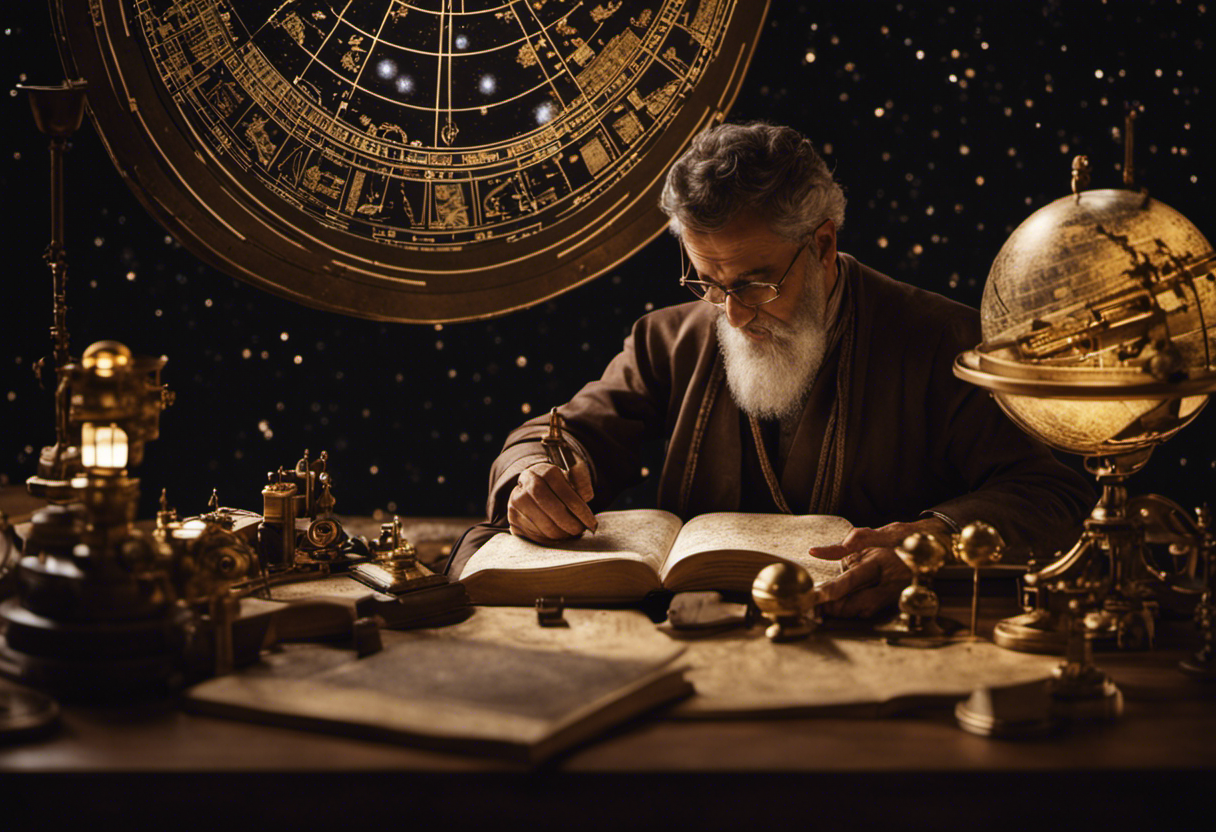

Throughout the ancient Babylonian civilization, astrology played a vital role in their timekeeping system, aligning celestial movements with the numerical precision necessary for accurate predictions and auspicious events. The importance of astrology in Babylonian culture cannot be overstated, as it was deeply intertwined with their beliefs and practices. Here are four key reasons why astrology held such significance in Babylonian timekeeping:
-
Divination: Babylonians believed that celestial events could reveal divine messages and provide insight into the future. Astrologers meticulously observed celestial phenomena to predict everything from weather patterns to the outcome of battles.
-
Religious Significance: Astrology was closely tied to Babylonian religious beliefs. Celestial bodies were seen as divine entities with the power to influence human affairs. Studying the heavens allowed Babylonians to understand and appease the gods.
-
Social Structure: Astrology played a crucial role in the social hierarchy of Babylonian society. The king relied on astrologers for guidance in decision-making, and the accuracy of their predictions determined their status and influence.
-
Agricultural Calendar: Babylonians used astrology to determine the optimal times for planting, harvesting, and other agricultural activities. Aligning their actions with celestial events ensured bountiful crops and prosperity for the community.
Interpreting the Babylonian Calendar’s Significance
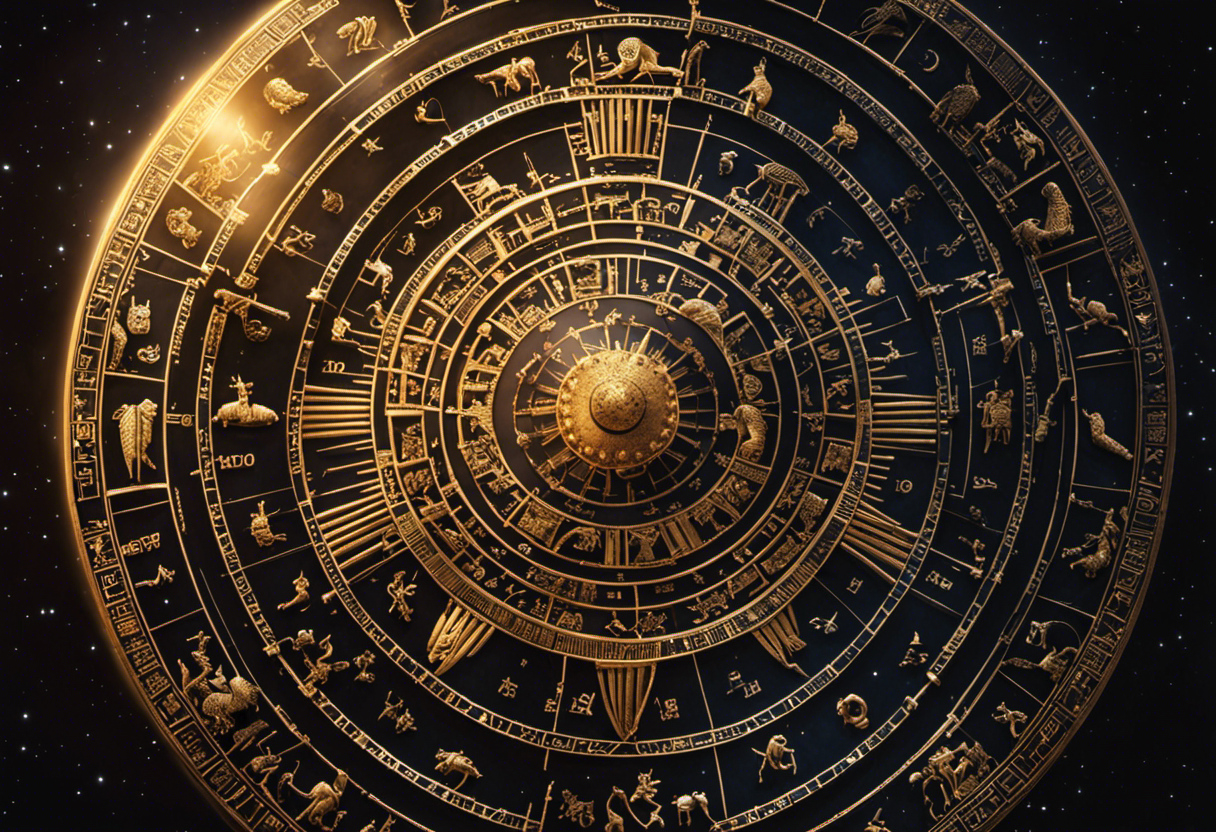

Although the Babylonian calendar’s significance is complex and multifaceted, scholars have made significant progress in interpreting its various components and their implications.
The Babylonian calendar, which was based on a lunar-solar system, played a crucial role in the Babylonian society, both culturally and historically. The calendar consisted of several interrelated components, including lunar months, intercalary months, and the numbering of years. These components were intricately connected to religious rituals, agricultural practices, and political events.
Interpreting the cultural significance of the Babylonian calendar requires a deep understanding of the Babylonian culture and its religious beliefs. The calendar was closely tied to the worship of various gods and goddesses, with specific months dedicated to specific deities. By observing and following the calendar, the Babylonians believed they could maintain harmony with the divine forces and ensure the prosperity of their society.
Furthermore, the historical implications of the Babylonian calendar are significant. It was one of the earliest known calendars, dating back to the 2nd millennium BCE. Its influence extended far beyond Babylon, shaping the calendars of neighboring civilizations such as the Hebrews and the Greeks. The Babylonian calendar also laid the groundwork for the development of more accurate calendars in later civilizations.
Influence of the Babylonian Calendar on Modern Timekeeping
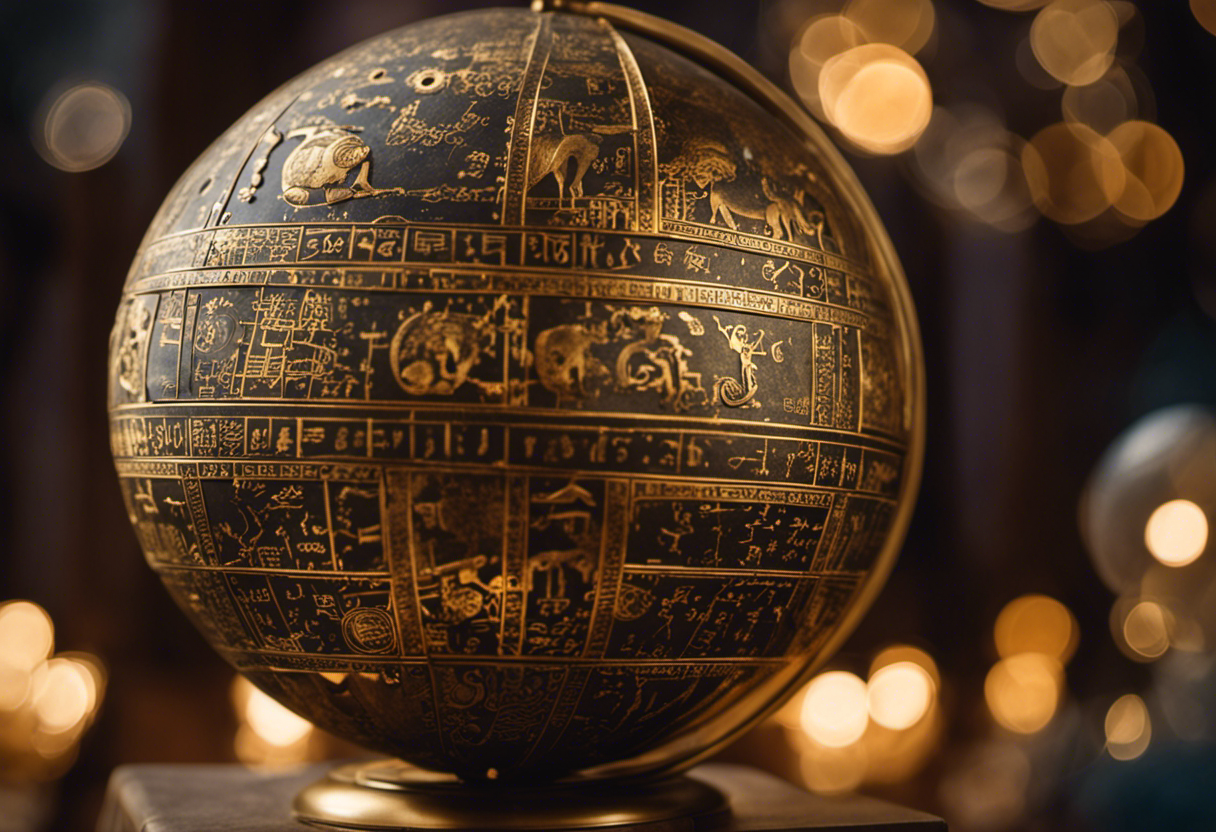

One cannot underestimate the impact of the Babylonian calendar on modern timekeeping, as its lunar-solar system and intercalary months laid the foundation for the development of more accurate calendars in later civilizations.
The Babylonian calendar had a significant influence on ancient civilizations, with its cultural significance evident in several ways:
-
Astronomy and Astrology: The Babylonians were renowned for their advanced knowledge of astronomy, and their calendar played a crucial role in tracking celestial events. This knowledge not only influenced their religious beliefs but also formed the basis for later astronomical studies in civilizations like the Greeks and Romans.
-
Agriculture and Festivals: The Babylonian calendar helped in determining the best times for planting and harvesting crops, ensuring the success of agricultural practices. It also dictated the timing of religious festivals and rituals, which were an integral part of Babylonian society.
-
Trade and Commerce: The Babylonian calendar’s standardization of time allowed for more efficient trade and commerce. It provided a common framework for measuring time and coordinating activities across different regions, facilitating economic growth and cultural exchange.
-
Legacy and Adaptation: The influence of the Babylonian calendar can be seen in subsequent calendars developed by other ancient civilizations, such as the Hebrew, Persian, and Greek calendars. These civilizations built upon the Babylonian system, incorporating their own cultural and religious practices.
Overall, the Babylonian calendar’s influence on ancient civilizations and its cultural significance cannot be overstated. Its lunar-solar system and intercalary months laid the groundwork for more accurate calendars, shaping the way we measure and organize time in modern society.
Conclusion
In conclusion, the Babylonian calendar was a remarkable system that relied on the lunar cycle to track time. Its intricate calculations and observations of the moon and stars allowed the Babylonians to accurately determine the length of a year and track the changing seasons.
Although astrology played a significant role in their timekeeping practices, the Babylonian calendar’s significance extends beyond its influence on modern timekeeping. The irony lies in the fact that despite its antiquity, this ancient calendar still holds relevance and continues to shape our understanding of time.

